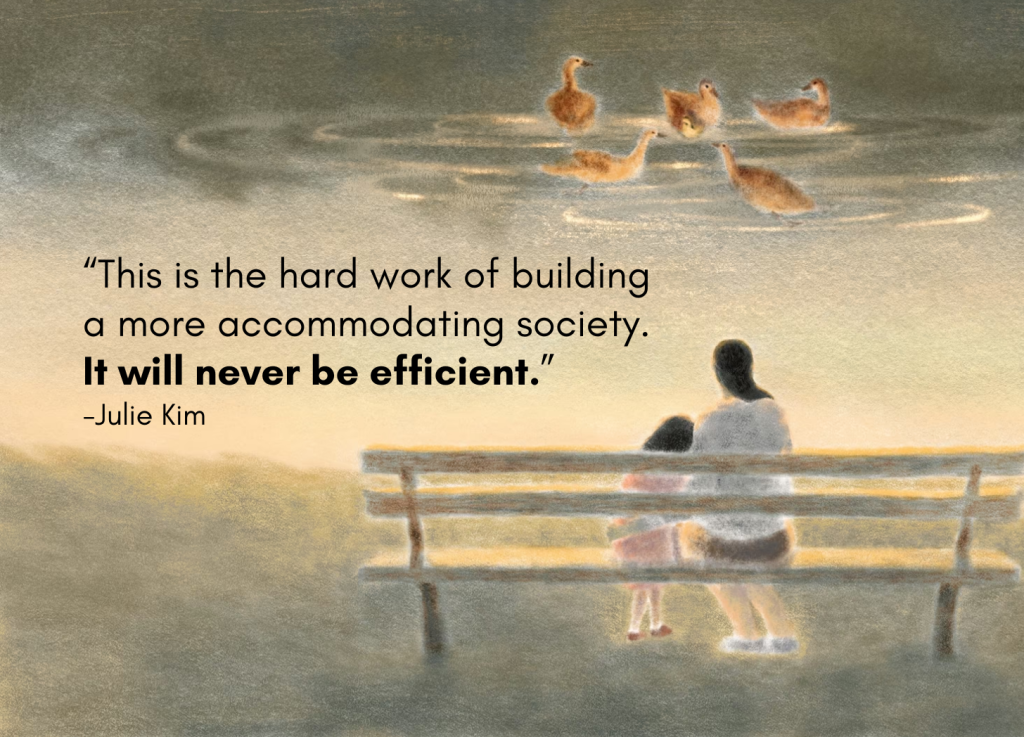I am very grateful to Julie Kim for writing about the importance of the Department of Education—and her concern over the Trump administration’s cuts to that department and the recent Supreme Court decision that allows those cuts to continue. She writes about the significance of a whole network of people who not only care for and teach her daughter Izzy but also care for and teach her how to be Izzy’s mom. She writes that she looks
“For bodies and minds filling school hallways and classrooms; for trained administrators, teachers, aides, and therapists who do the slow, important work of meeting children where they are, while modeling for those students’ parents how to do the same. This is the hard work of building a more accommodating society. It will never be efficient.”

I agree with all of Kim’s points about how important it is to keep the civil rights protections and additional funding for special education. Such protections are a matter of both compassion and justice. But Kim takes it a step further. I love the way she articulates the residual benefits and life-transforming aspects of being Izzy’s mom. She explains that most of her own education had been a matter of “prize-collecting.” In reflecting on this way of being, she writes:
“One of the ugly truths of prize-collecting, especially under a regime of ‘efficiency,’ is that it feeds off anxieties about scarcity: Even within close-knit communities, individuals are positioned to compete with one another for pieces of a pie that only shrinks. The narrowness of that value system doesn’t account for Izzy’s contribution to society as that rare someone who is easy to love and who also gives love easily to anyone willing to meet her where she is. And the loneliness of abiding by that value system, of being confined by it, no longer serves me as her mother.”
Yes, the way of scarcity does not serve any of us. It keeps us in a zero-sum game of winners and losers when we are actually invited into a life of abundance, generosity, and love for one another.
Let’s stay in touch. Subscribe to my newsletter to receive weekly reflections that challenge assumptions about the good life, proclaim the inherent belovedness of every human being, and envision a world of belonging where everyone matters. Follow me on Facebook, Instagram, and YouTube and subscribe to my Reimagining the Good Life podcast for conversations with guests centered around disability, faith, and culture.



